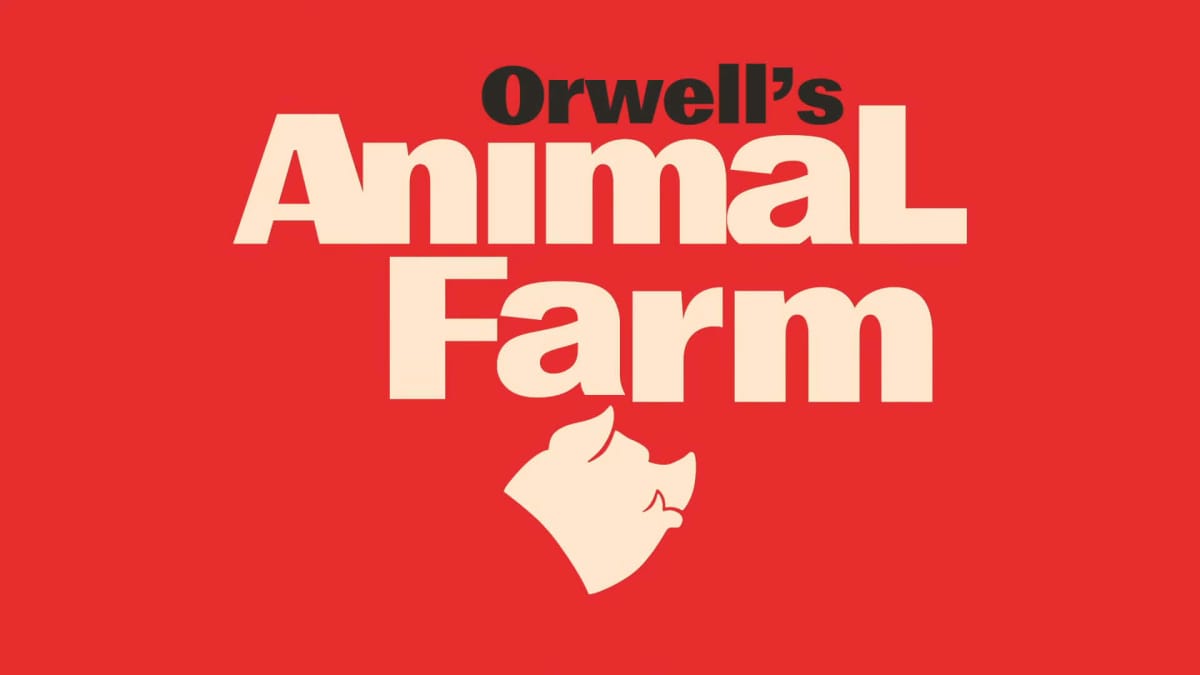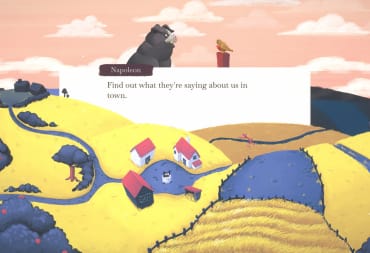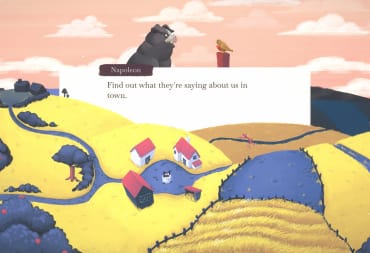In 1945, English author George Orwell would see his novella Animal Farm published. The story is a fable, warning of the dangers of totalitarian rule through the lens of the Russian Revolution and the rise of Communism. It is a bona-fide classic, one that has influenced many authors and media since, including several radio plays, films, and other forms of media.
Yet surprisingly, there have been no game adaptations of Orwell’s work, at least until now. Indie developer Nerial is the first to attempt it, with a faithful adaptation to Orwell’s novella while adding new elements along the backdrop of an adventure game. It is this adaptation, officially titled Orwell’s Animal Farm, that helps to breathe life into the fable once more, creating a narrative experience that finally fits an interactive medium like video games.
Two Legs Bad!
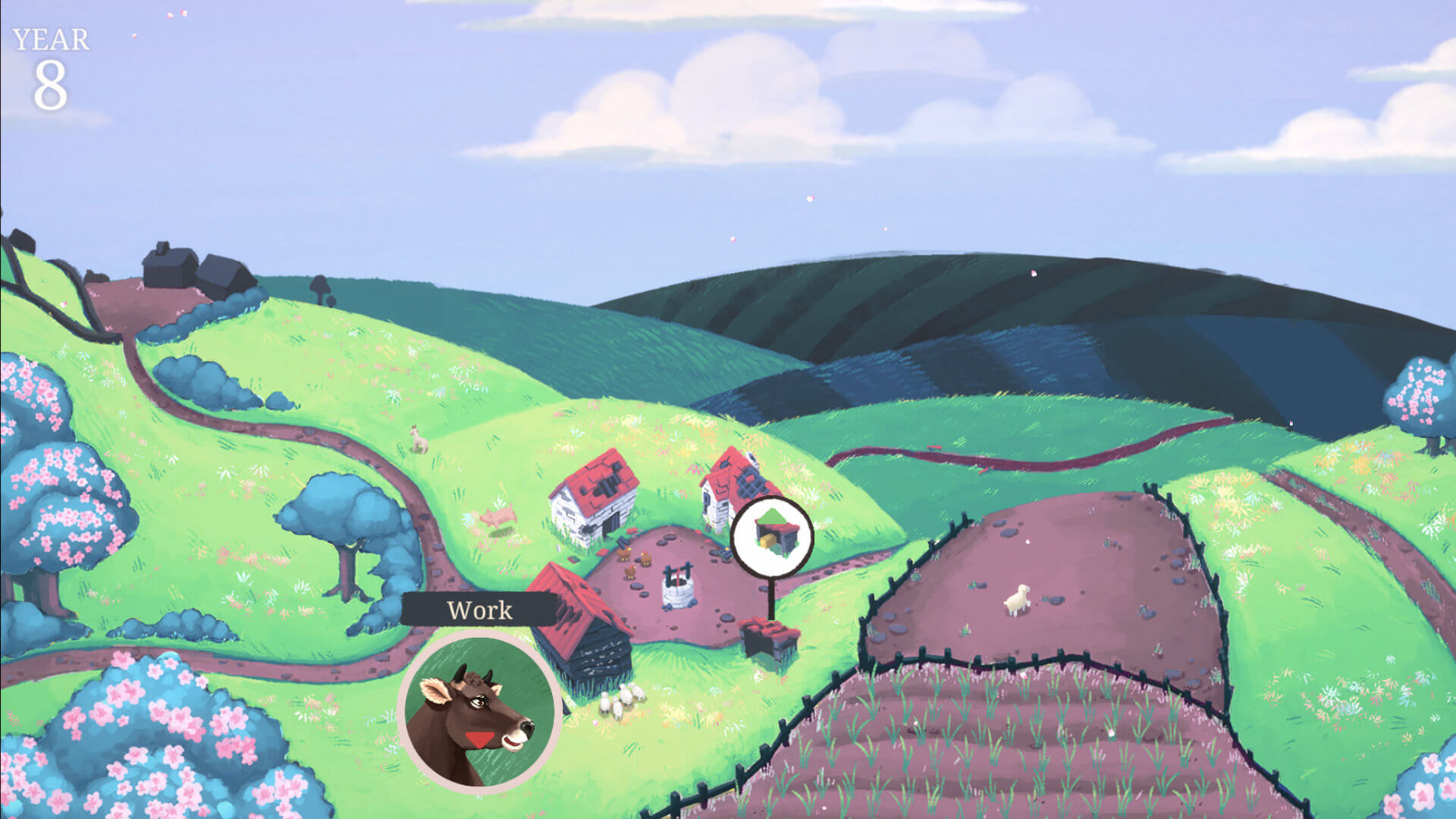
Orwell’s Animal Farm is pretty thin when it comes to what is ‘standard’ gameplay. Most of the mechanics is a just a point-and-click style adventure game with some very light strategy elements. The gameplay relies on the choices of the player in selecting who will accomplish a task. For example, selecting the chickens or a named character like Boxer the horse to collect hay for the farm. The choice between them yields the reward of more food, but using the characters for the tasks often result in the animals becoming weaker or more angry.
There are three resources to manage in Orwell’s Animal Farm. Food, which is pretty important for keeping your animals fed, as well as paying for repairs and defense on the farm. You also have ‘Animalism’ - the happiness meter for your farm - to contend with. Propagandizing and trying to spread Animalism to other farms raises it, while labor and setbacks lower it. The final resource is the overall health of the Animals, how strong and happy they are so they can actually accomplish the tasks given to them.
On the surface, this sounds pretty simple, but events are randomized and mandatory to deal with, often leading the player to pick a choice that would negatively affect either your food supplies, Animalism, or even the disposition of individual animals. It is a very thin tightrope to tread that will never satisfy anyone. The choice and consequences of the Orwell’s Animal Farm create a pseudo-survival simulation to see how long the farm can last. Hitting the seven year mark is an achievement in its own right, with most playthroughs ending at 3-4 years on average, in a way that is never truly happy for the animals.
Most of Orwell’s Animal Farm meets predictable outcomes of your actions. Like Orwell’s novella, the game has no real happy conclusion to it, despite anything you do to deviate the narrative.
Orwell’s Animal Farm is the kind of game that is hard to plan ahead for. Some scenarios have lots of food in stock only to see most of the animals unhappy or injured during fights with the humans. The battles are simple, where you click on an animal that acts as your resource, often leading to heavy injuries or death if you utilize them too much. Others see the animals slowly starve to death, but be almost blindly optimistic in the process. Most of the game is trying to find a balance where you can satisfy both happiness and food supply, but doing so is difficult as your pool of animals that you can use in mandatory story sections shrinks or negatively affects the resource. The meat of Orwell’s Animal Farm becomes a balancing act of resting the animals, getting food, and spreading Animalism, an incredibly difficult task despite how simple the gameplay really is.
It is also an appropriate outcome. In fact, most of Orwell’s Animal Farm meets predictable outcomes of your actions. Like Orwell’s novella, the game has no real happy conclusion to it, despite anything you do to deviate the narrative. One playthrough of the game for me saw the pig Napoleon killed in the first year. In the Novella, Napoleon would become the de-facto dictator of the farm, but his death in the game allowed the Trotsky stand-in of Snowball to take power for himself.
It would prove disastrous for my playthrough, with the animals slowly turning on each other, growing hungry, and either abandoning the farm of turning on each other within two years. It was a painful lesson; despite the arguably good intentions of Snowball’s vision, his lack of planning for the moment would see resources strained and unstable for the whole farm. It was an appropriate conclusion really, considering how impotent and inevitable the fall of Animal Farm was at that point.
Four Legs Good!
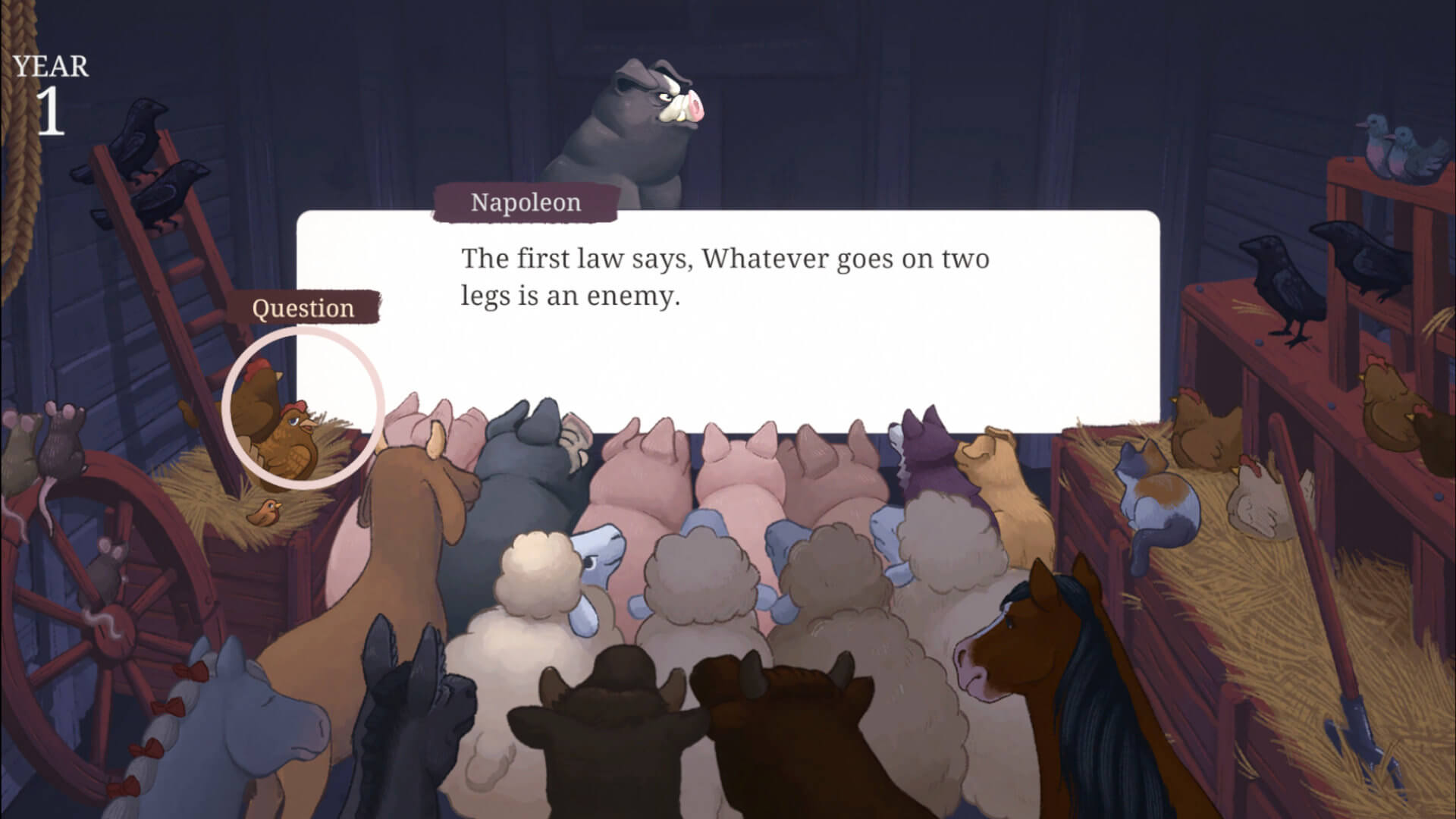
That is kind of the point of Animal Farm as a fable, really. Orwell’s work was to show the folly of Communism and groupthink, of power always corrupting at the very core once that power is grasped. Animal Farm is always doomed to fail, regardless of who was in charge, and the endings to Orwell’s Animal Farm reflect this, from the standard Napoleon regime to the destruction of the farm in battle, to the most savage ending of all, seeing the animals go mad with hunger.
Orwell’s Animal Farm is a game designed to be replayed multiple times, mostly to collect the eight possible ending slides and all of the stamps and milestones possible in the game.
It is a mix of solid set-ups and appropriate pay-offs in the spirit of Orwell’s prose, blending it together in this interactive game in the process
Outside of this admittedly paltry collectible aspect, the only real reason to play Orwell’s Animal Farm is because of the narrative and writing. The real star of the game is Orwell’s own words transposed into dialogue and narration. Voice actor Abubakar Salim, the voice of Bayek from Assassin’s Creed: Origins, lends his talents to the narration, doing much of the heavy lifting as if he were reciting a voice recording without character dialogue. The addition of Salim is a great asset that adds a lot to the games relatively simple presentation; his voice provides a sense of optimistic dread with every word uttered from the script.
Orwell is not the only writer in Orwell’s Animal Farm, ironically. The script was also extended by author Emily Short, probably best known for the interactive fiction game Galatea and City of Secrets. Short is considered one of the best in the field for text-based video games, something ingrained in the DNA of Orwell’s Animal Farm. Her additions also enrich the narrative and provide an extra layer of subtext to the more ‘what-if?’ scenarios that can occur, such as the aforementioned death of Napoleon in battle.
Some of what she adds provides solid flavor. My favorite example is the horse Boxer musing about seeing a Camel, only to see an escaped Circus Camel wander to the farm and live among the animals as an immigrant. Other examples include the more nightmare scenarios, the heavy despair the animals feel under the false sense of security provided by Squealer, to retelling the iconic moments from the novella as they are directly influenced by the choices the player makes. It is a mix of solid set-ups and appropriate pay-offs in the spirit of Orwell’s prose, blending it together in this interactive game in the process.
Orwell's Animal Farm - Final Thoughts
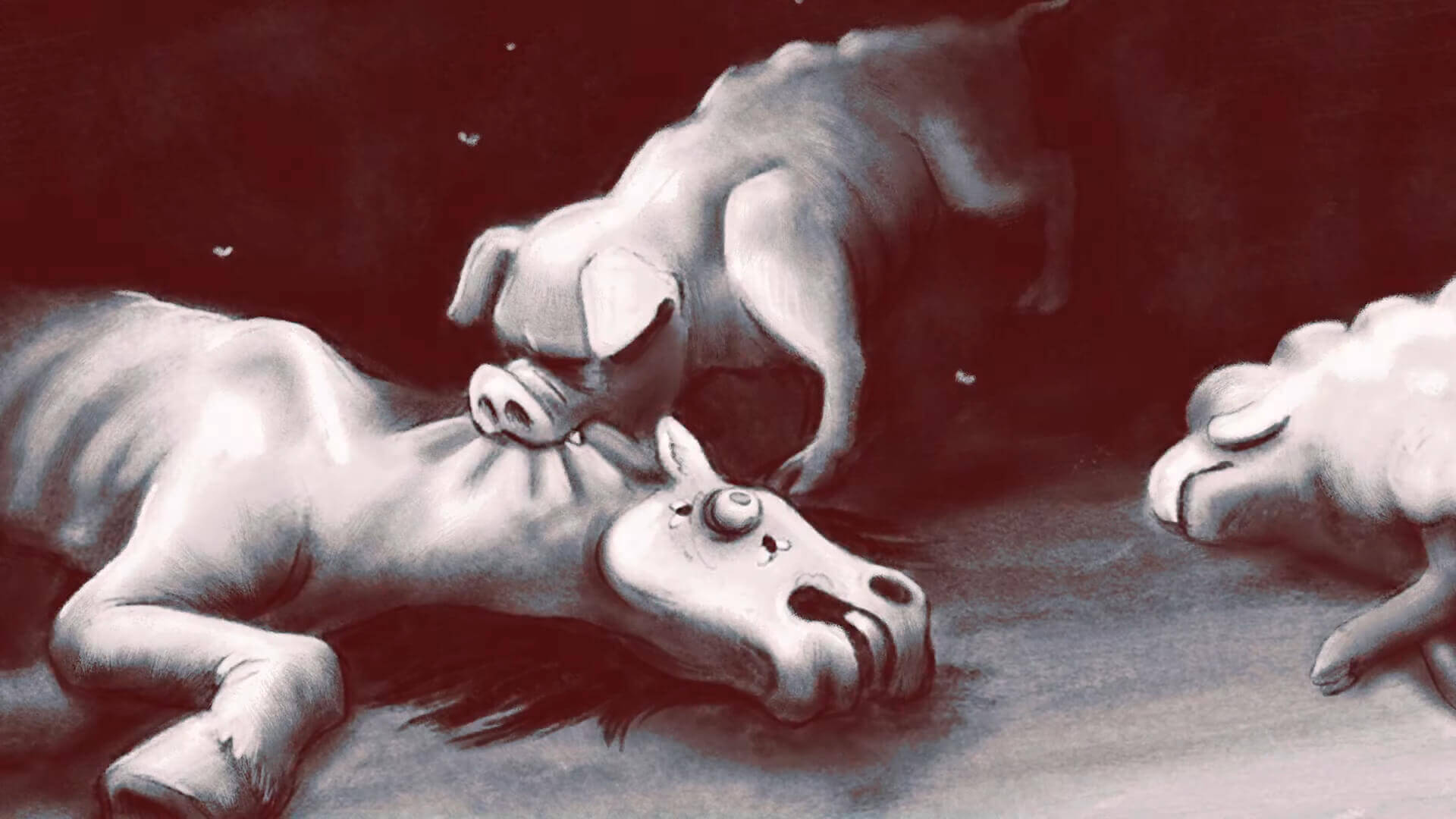
Orwell’s Animal Farm is an excellent piece of interactive fiction, and for any literary fans, a game to certainly play and enjoy for themselves. Many may balk at the lack of actual features in the game, but it is the power of the script and the appropriate sense of dread that categorizes the games core strength; it is a retelling of a classic literary work, providing a new perspective appropriate in the medium it was created in. For that alone, Orwell’s Animal Farm is a solid success.
TechRaptor reviewed Orwell's Animal Farm on PC, with a code provided by the developer. The game is also available on iOS and Android.
Review Summary
Pros
- Great Script and Narration...
- Surprisingly Tense Survival Mechanics...
- Excellent Adaptation of the Novella...
- Colorful Visuals Perfect Juxtaposition to Horrific Events
Cons
- ... Limited Interactivity Overall
- ... Lack of Positive Resolutions May be a Turnoff
- ... Pretty Short Like the Novella
Have a tip, or want to point out something we missed? Leave a Comment or e-mail us at tips@techraptor.net
